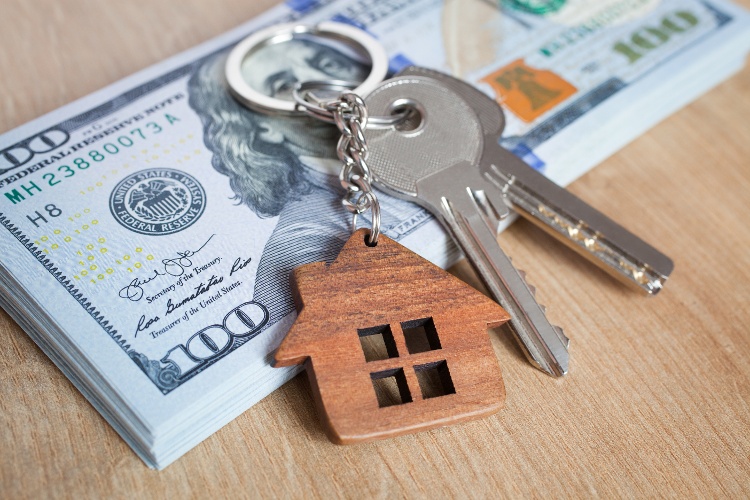How To Make Money In Real Estate Rentals
Last updated on March 5, 2021
One of the nice things about investing in real estate is that you can learn a lot about what to buy and where to invest by watching what the big players are doing. Just recently, JLL – a world leader in real estate services – announced they are creating a new team to target single-family rentals. It isn't just JLL that thinks the single-family rental housing segment is a growing force in real estate. Over the last six months, other institutional investors including RangeWater Real Estate, Invitation Homes, and Blackstone Real Estate Income Trust began deploying nearly $1.5 billion in combined capital to invest in single-family homes in some of the fastest-growing real estate markets in the U.S. Of course, just because everyone else is doing something doesn't mean that you should too. But if you're interested in investing in single-family rental property, keep reading to learn how to make money renting houses just like the big boys do. Let's begin by taking a quick look at some of the key benefits of renting single-family houses: There are also some potential drawbacks to renting houses, including: Although renting houses may be one of the more popular ways to make money in real estate, there are other options as well: Despite the different ways to invest in real estate, many investors choose single-family rental houses. They are easy to find and finance, and almost everyone knows how a house 'works.' Single-family rental properties can offer investment returns in 6 different ways. Positive monthly cash flow is the number one way to make money renting houses. Net cash flow is the difference between the rental income you collect from the tenant each month and the operating expenses for the home. For example, let's say you purchase a $150,000 rental home. If the rental income is $1,500 per month and your expenses and mortgage payment (PITI) are a total of $1,300 per month, your net cash flow is $200 each month or $2,400 per year. Of course, earning passive net cash flow of $200 each month may not seem like a lot of money to some people. Also, even though there's a tremendous demand for tenants for rental homes, there may be periods where there is no rental income if the house is between tenants. But there are many more ways to make money renting houses in addition to the monthly cash flow. The second way to make money renting houses is from the appreciation in home value. According to the Freddie Mac House Price Index (FMHPI) report, average house prices in the U.S. have increased more than 37% in the past five years. That means that if you purchased a $150,000 house five years ago it would be worth about $205,500 today, and you would have earned $55,500 just from the appreciation. To be fair, some real estate markets have better appreciation than others. For example, real estate markets with a high percentage of renters like Atlanta have seen home prices rise by nearly 50% of the past five years. On the other hand, home prices in a high cost of living area like Trenton, New Jersey have only gone up by 29% during the same time period. Another way landlords make money renting houses is with amortization, which is another word for 'paying down the principle.' A $150,000 single-family rental house purchased with a 30-year fixed mortgage at today's low rates and a conservative 25% down payment has a monthly mortgage payment of $465 principal and interest. When you buy the house your loan amount is $112,500. Five years from now, your loan balance would be paid down to about $97,000, giving you a gain of $15,500 through amortization. Keep in mind that you are using the tenant's rent check each month to pay down your loan, not your personal funds. Amortization and financing are two examples of using OPM or other people's money to make money renting houses. Owning real estate is also an excellent way to hedge against inflation. Since 2016, the annual rate of inflation in the U.S. is about 2% per year, according to the Federal Reserve. On the other hand, real estate prices in the U.S. have grown by an average of almost 11% per year over the same time period. That means that house prices in the U.S. have increased 5 times more than the rate of inflation. You've probably read about real estate investors who make a lot of money every month yet pay very little in taxes. The reason the net worth of some rental property investors is so high is that they take advantage of the tax benefits the IRS gives real estate investors. Real estate tax write-offs include countless items such as: The IRS also allows real estate investors to depreciate residential property over a period of 27.5 years. For example, if you purchase a house for $150,000 and the lot is worth $25,000, you can deduct $4,545 from your pre-tax income each year ($125,000 / 27.5 years). You can't depreciate the land, because the IRS assumes it never wears out. However, the IRS does assume the house wears out a little bit each year, even if you keep it in tip-top condition. Better yet, if you buy a rental home from another investor, the 27.5 years begins all over again. Believe it or not, there's more to real estate tax benefits than deductions and depreciation. When you sell investment real estate and buy a different property, the IRS allows you to use a Section 1031 tax-deferred exchange to indefinitely defer paying capital gains tax. By conducting a tax-deferred exchange, you have more money to reinvest in real estate instead of paying taxes to the government. Last but not least, investing in real estate becomes self-funding when you use what experienced real estate investors call the "rinse, wash, and repeat" technique. Here's how self-funding for real estate investors works. Assume you buy a single-family rental property today and put all of your monthly net cash flow profits into a special reinvestment fund. After a few years - thanks to the combination of your savings plus appreciation and amortization – you'll have enough equity to do a cash-out refinance to raise the down payment to buy another single-family rental property. After another few years, you can do the same thing, over and over again. This is why they call self-funding "rinse, wash, and repeat." It can be difficult making money renting houses for investors who live in areas where housing prices are sky-high. In San Francisco for example, the median price of a single-family home is about $1.4 million dollars, according to Realtor.com. Even if you have the money to make a 25% down payment of $350,000, is that really the best option for your investment capital? For that amount of money, you could make down payments on four rental houses in Charlotte, or buy six single-family rental homes in Kansas City. Remote real estate investing is ideal for rental property investors who live in cities where home prices have appreciated sharply, putting good rental property out of reach. The good news is that there are plenty of smaller real estate markets in the U.S. where home prices are still very affordable, rents are growing, and yields are higher. Investing in real estate remotely gives you access to a wider variety of rental property, choose business-friendly cities where taxes are low and economies are strong and growing, and the opportunity to generate higher returns on your capital invested. To successfully invest in real estate in a different city or state, you'll need to hire an experienced local property manager to take care of the tenant and your rental property. Your manager handles the day-to-day details of the property, while you review your monthly financial performance reports and deposit your monthly check. If you're looking to invest outside of your local market, investors commonly look into these factors when evaluating a market: Once you've found a market that you're interested in, it's time to get an understanding of the different metrics to evaluate properties. Here are a few of the more common terms and rules of thumb you'll see floating around: Now that you have the basic metrics and "rules" under your belt, you're probably wondering where you should even be looking to find an investment property. Luckily, there are many resources available to you: The real estate market today offers everything investors are looking for. Housing prices are on the rise, the demand for rental property is strong, rents are on the rise, and vacancies are low. While there are a variety of ways to invest in real estate, single-family homes generally are the most appealing to tenants and real estate investors. They are easy to find and finance, buy and sell, and a growing number of renters across the country are looking for good houses to rent.
Benefits of Renting Houses

6 Ways Renting Houses Makes Money
1. Cash flow
2. Appreciation
3. Amortization
4. Inflation hedge
5. Tax benefits
6. Self-funding

Remote Real Estate Investing

How to Find Attractive Rental Houses
Final Thoughts

How To Make Money In Real Estate Rentals
Source: https://learn.roofstock.com/blog/how-to-make-money-renting-houses
Posted by: townsdecommand.blogspot.com

0 Response to "How To Make Money In Real Estate Rentals"
Post a Comment